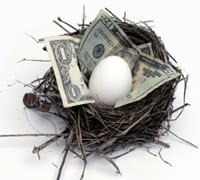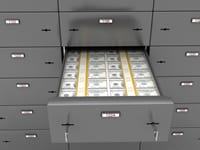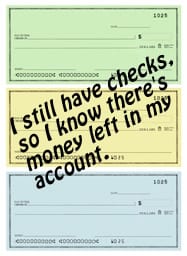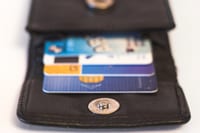 What is damaged or mutilated currency? What can you do with it?
What is damaged or mutilated currency? What can you do with it?
Damaged and/or mutilated currency is paper money that has been damaged in a major way. I’m not talking about money that’s faded and a little soft from being washed along with your jeans. This is paper money that has been ripped, burned, or even partially digested.
Let’s say you have a piece of a $100 dollar bill. You can’t spend it at the store, so what can you do with it?
If you have more than 50% of the $100 bill, you can exchange it for a replacement. Why? Because that means you probably have at least one full serial number and a portion of the second. Don’t bring it to your local bank branch – they won’t accept it. You have to either mail it, or bring it, to the Bureau of Engraving and Printing in Washington, DC. If you mail it, take precautions. Ask about insurance at your post office or other delivery service. If you go in person, bring ID.
If you have less than half of the $100 bill, you may still be able to exchange it. The treasury will consider your claim if you have other documentation to support your loss.








